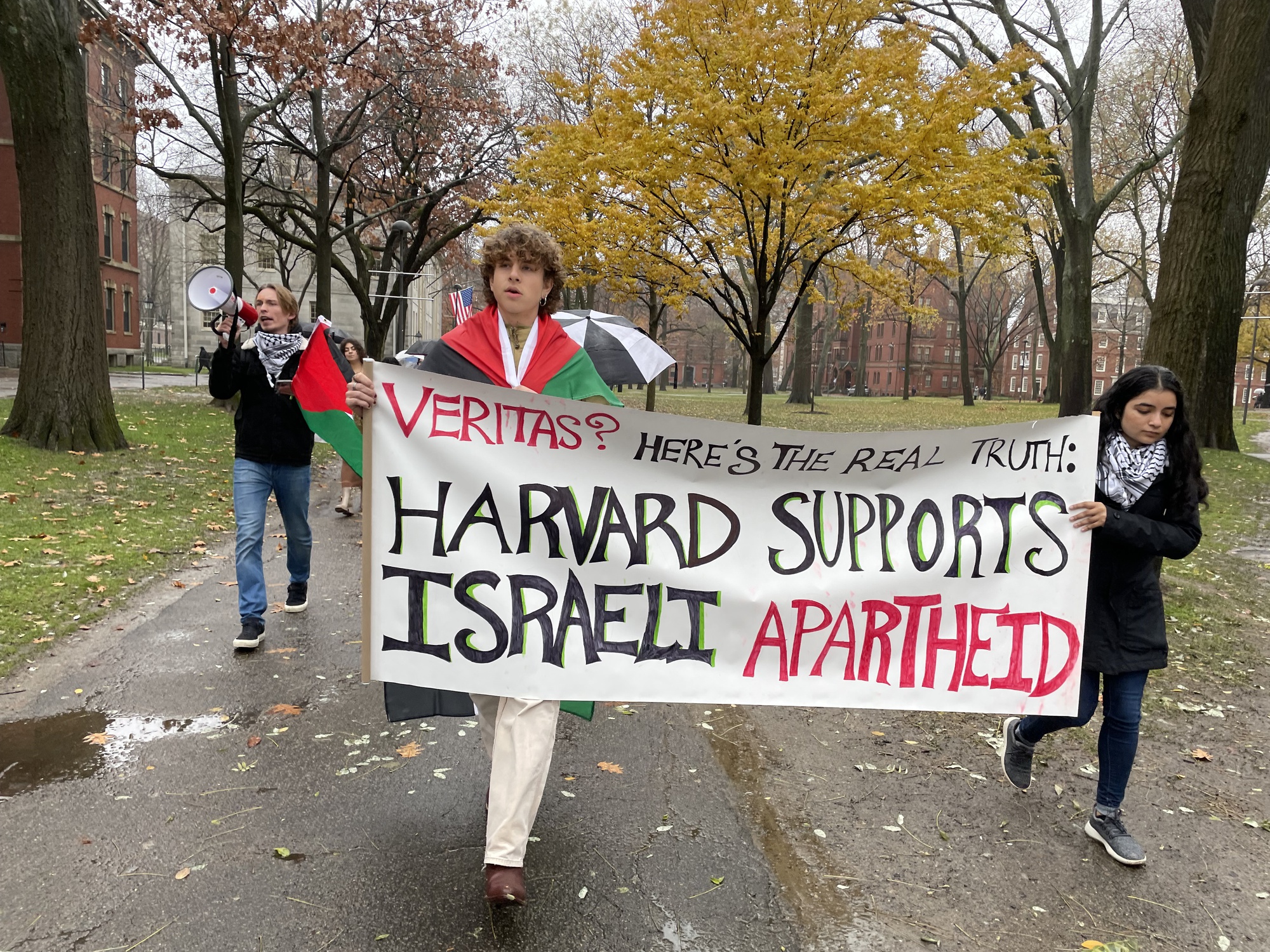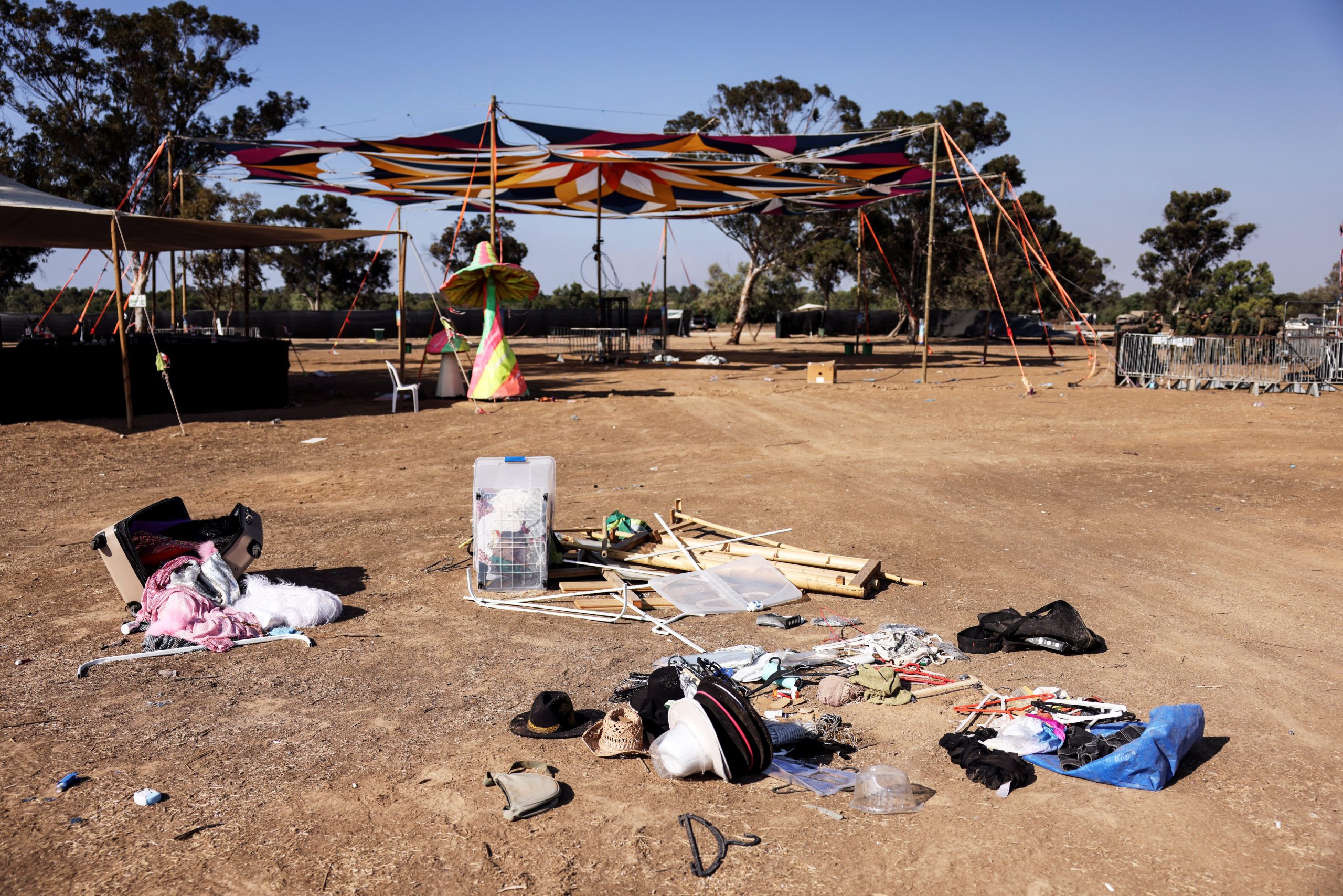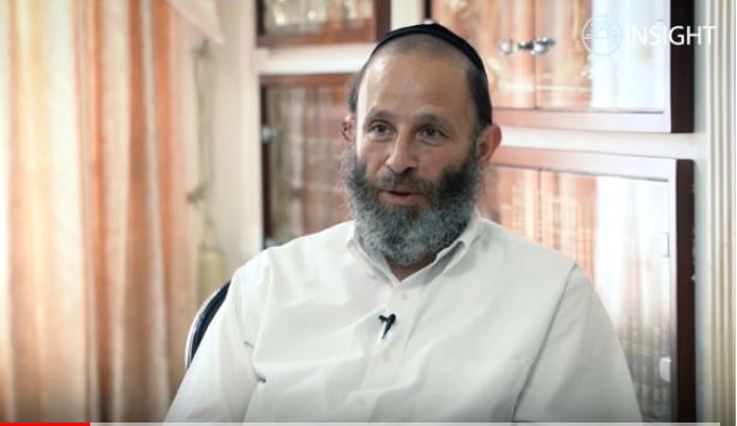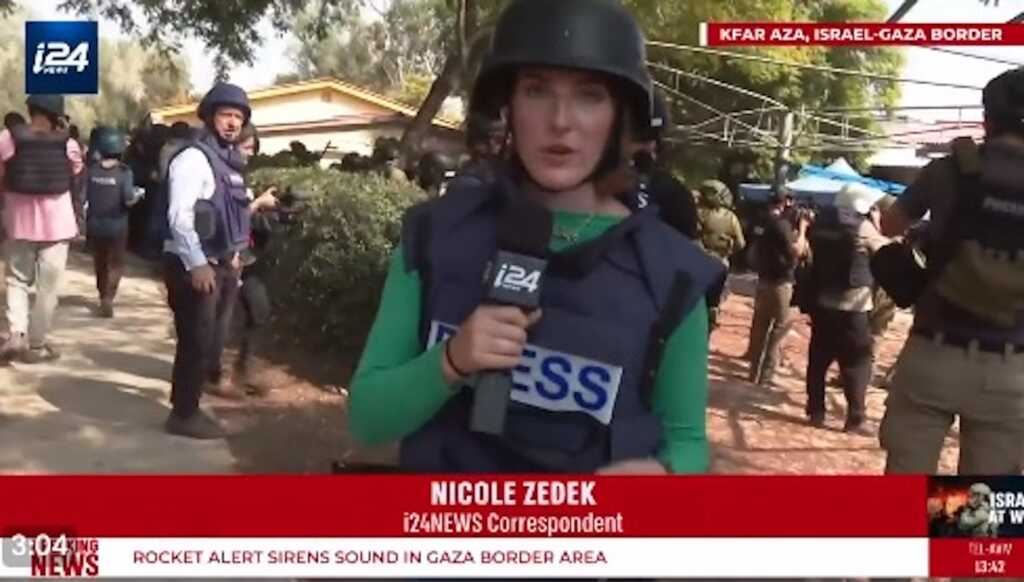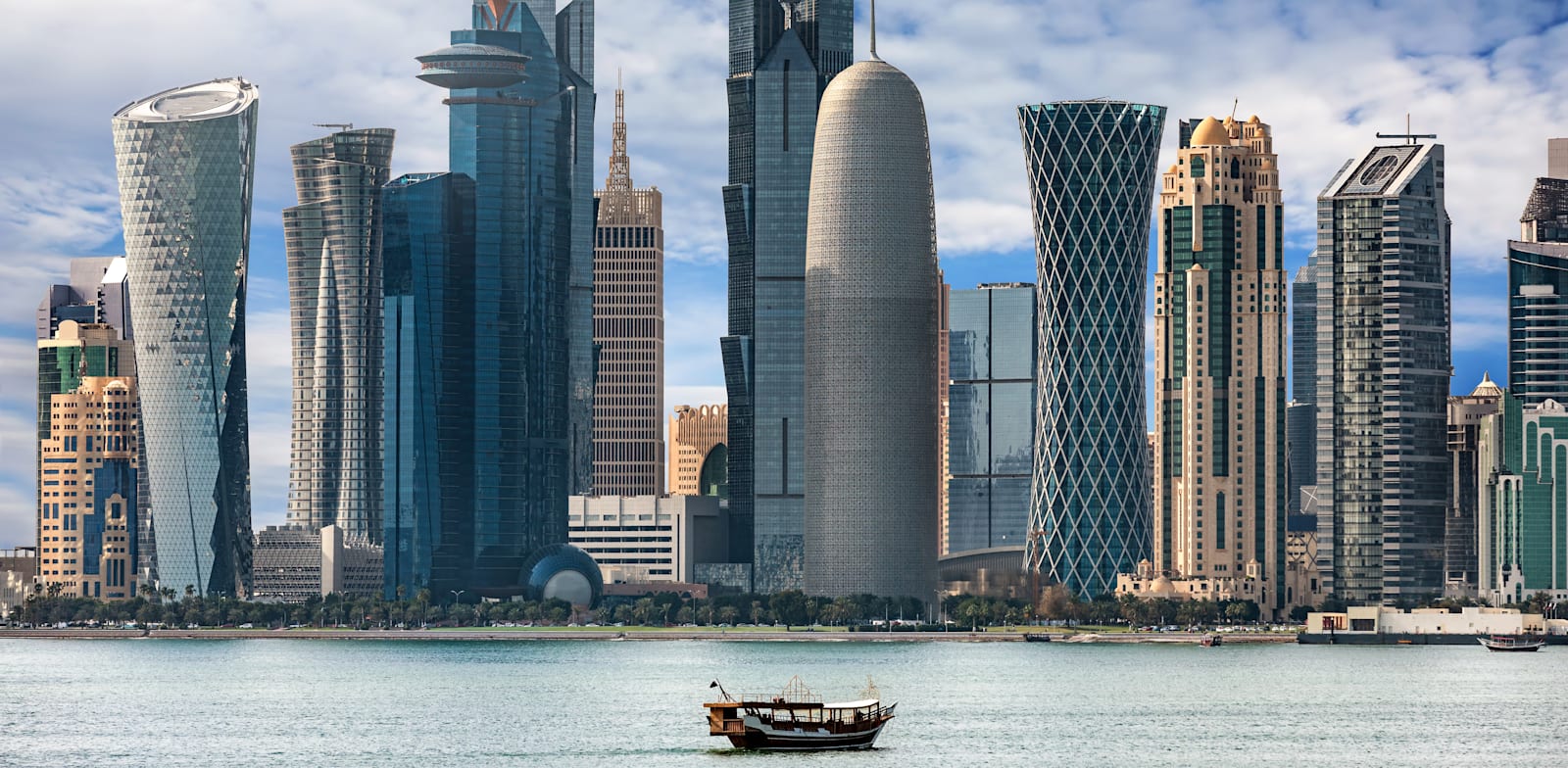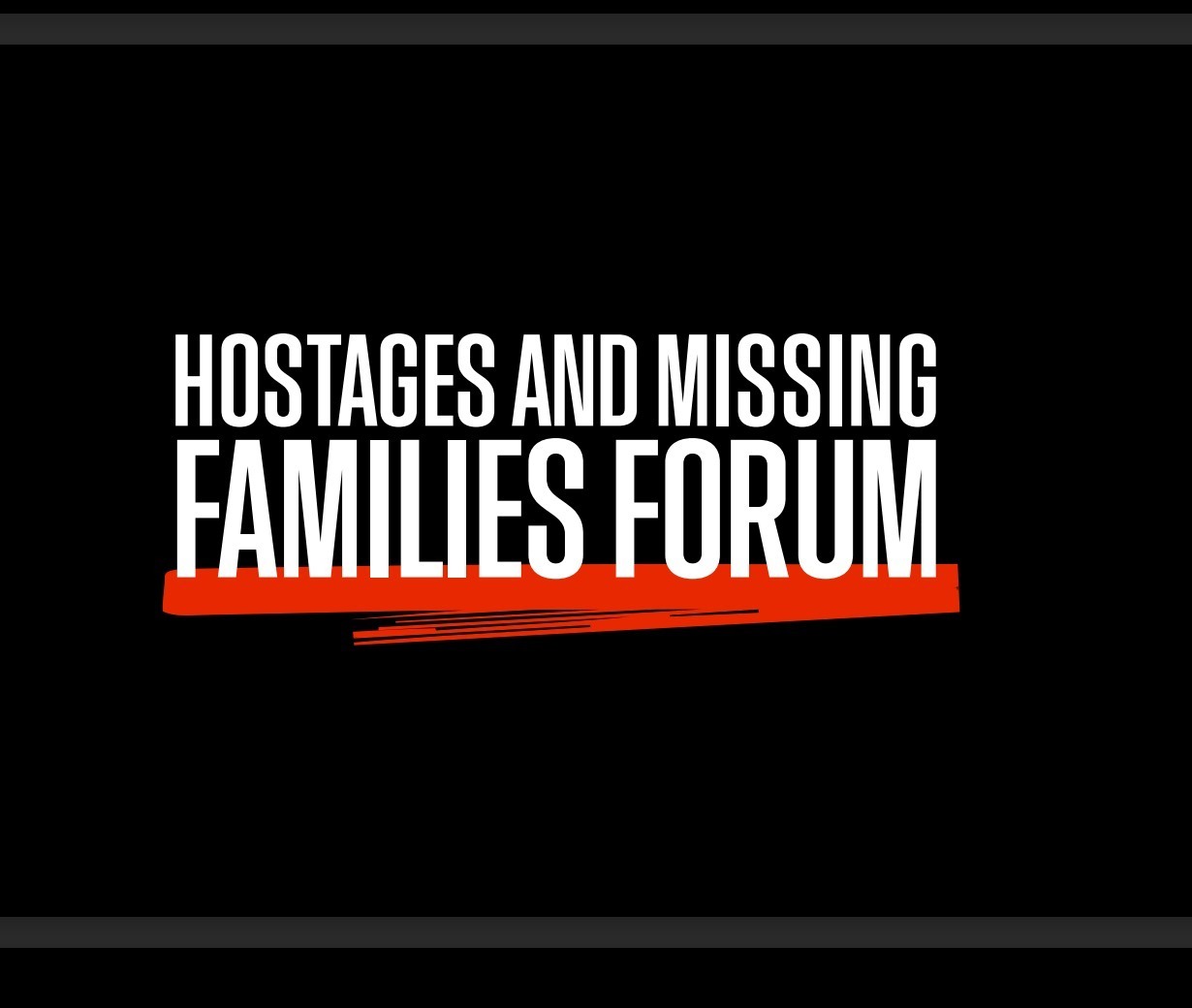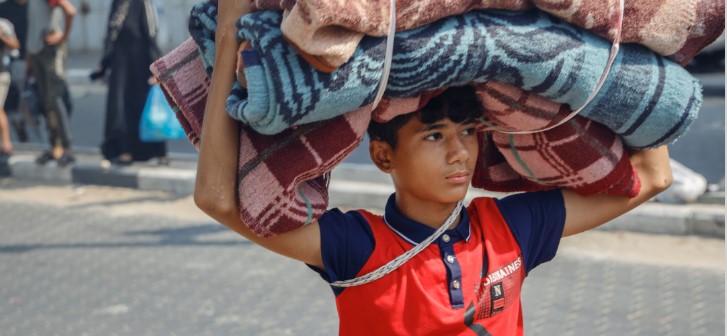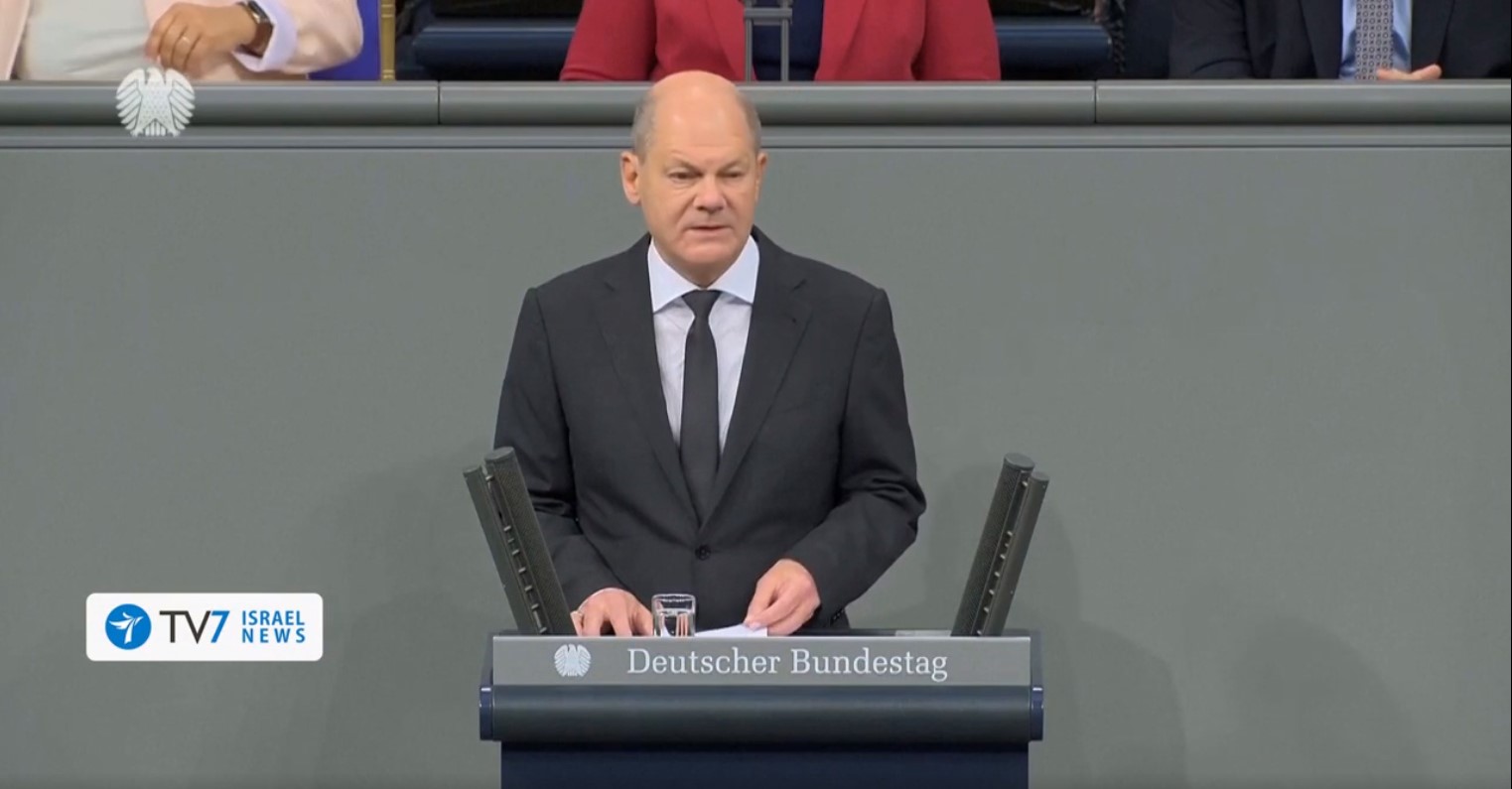We, the undersigned student organizations, hold the Israeli regime entirely responsible for all unfolding violence.
Today’s events did not occur in a vacuum. For the last two decades, millions of Palestinians in Gaza have been forced to live in an open-air prison. Israeli officials promise to “open the gates of hell,” and the massacres in Gaza have already commenced. Palestinians in Gaza have no shelters for refuge and nowhere to escape. In the coming days, Palestinians will be forced to bear the full brunt of Israel’s violence.
The apartheid regime is the only one to blame. Israeli violence has structured every aspect of Palestinian existence for 75 years. From systematized land seizures to routine airstrikes, arbitrary detentions to military checkpoints, and enforced family separations to targeted killings, Palestinians have been forced to live in a state of death, both slow and sudden.
Today, the Palestinian ordeal enters into uncharted territory. The coming days will require a firm stand against colonial retaliation. We call on the Harvard community to take action to stop the ongoing annihilation of Palestinians.
This statement was co-authored by a coalition of Palestine solidarity groups at Harvard. For student safety, the names of all original signing organizations have been concealed at this time.
https://docs.google.com/document/u/0/d/1HfMvVpey18ArAnVHtp8UlqT_8V5zaR9sFE5ohC4Ls7U/mobilebasic
#######
Joint Statement by Harvard Palestine Solidarity Groups on the Situation in Palestine
We, the undersigned student organizations, hold the Israeli regime entirely responsible for all unfolding violence.
Today’s events did not occur in a vacuum. For the last two decades, millions of Palestinians in Gaza have been forced to live in an open-air prison. Israeli officials promise to “open the gates of hell,” and the massacres in Gaza have already commenced. Palestinians in Gaza have no shelters for refuge and nowhere to escape. In the coming days, Palestinians will be forced to bear the full brunt of Israel’s violence.
The apartheid regime is the only one to blame. Israeli violence has structured every aspect of Palestinian existence for 75 years. From systematized land seizures to routine airstrikes, arbitrary detentions to military checkpoints, and enforced family separations to targeted killings, Palestinians have been forced to live in a state of death, both slow and sudden.
Today, the Palestinian ordeal enters into uncharted territory. The coming days will require a firm stand against colonial retaliation. We call on the Harvard community to take action to stop the ongoing annihilation of Palestinians.
African American Resistance Organization
Amnesty International at Harvard
Bengali Association of Students at Harvard College
Harvard Act on a Dream
Harvard Arab Medical and Dental Student Associationp
Harvard Chan Muslim Student Association
Harvard Chan Students for Health Equity and Justice in Palestine
Harvard College Pakistan Student Association
Harvard Divinity School Muslim Association
Harvard Middle Eastern and North African Law Student Association
Harvard Graduate School of Education Islamic Society
Harvard Graduate Students for Palestine
Harvard Islamic Society
Harvard Law School Justice for Palestine
Harvard Divinity School Students for Justice in Palestine
Harvard Jews for Liberation
Harvard Kennedy School Bangladesh Caucus
Harvard Kennedy School Muslim Caucus
Harvard Kennedy School Muslim Women’s Caucus
Harvard Kennedy School Palestine Caucus
Harvard Muslim Law School Association
Harvard Pakistan Forum
Harvard Prison Divest Coalition
Harvard South Asian Law Students Association
Harvard South Asians for Forward-Thinking Advocacy and Research
Harvard TPS Coalition
Harvard Undergraduate Arab Women’s Collective
Harvard Undergraduate Ghungroo
Harvard Undergraduate Muslim Women’s Medical Alliance
Harvard Undergraduate Nepali Students Association
Harvard Undergraduate Palestine Solidarity Committee
Middle East and North African Graduate School of Design Student Society
Neighbor Program Cambridge
Sikhs and Companions of Harvard Undergraduates
Society of Arab Students
https://docs.google.com/document/u/0/d/1HfMvVpey18ArAnVHtp8UlqT_8V5zaR9sFE5ohC4Ls7U/mobilebasic
Senator Cotton Urges Mayorkas to Deport Foreign Nationals Who Support Hamas
By DAVID ZIMMERMANN
October 17, 2023 9:57 AM
Senator Tom Cotton (R., Ark.) urged Department of Homeland Security secretary Alejandro Mayorkas to deport any foreign national who has expressed support for Hamas since the militant group attacked Israel ten days ago.
I write to urge you to immediately deport any foreign national—including and especially any alien on a student visa—that has expressed support for Hamas and its murderous attacks on Israel,” Cotton wrote to Mayorkas in a letter dated Monday. “These fifth columnists have no place in the United States.”
The term “fifth column” refers to a group of people that attempts to undermine a nation’s solidarity from within by supporting its enemies.
The Republican lawmaker cited the Immigration and Nationality Act as grounds for the immediate deportation of non-citizens from the country.
“Federal law is clear that any alien who ‘endorses or espouses terrorist activity or persuades others to endorse or espouse terrorist activity or support a terrorist organization’ is inadmissible and must be deported,” he said.
The request comes after many student groups on campuses across the country issued statements blaming Israel for Hamas terrorism.
On the same day the terrorist group attacked the Jewish nation, 34 student-led organizations at Harvard University signed a pro-Palestinian statement, blaming Israel for the atrocities. Other colleges such as George Washington University, the University of Virginia, and the University of California, Berkeley soon followed suit. At least nine of Harvard’s student groups have since retracted their signatures, and the statement has since then been deleted.
Many other students on college campuses have signed similar statements and organized anti-Israel protests in response to the Middle Eastern conflict. At Georgetown University in Washington, D.C., for example, students mourned the deaths of Palestinian civilians in Israel’s retaliatory strikes against Hamas, despite the latter’s initial attack a few days prior.
“The appalling explosion of anti-Semitism in the United States over the past few weeks should disturb anyone who shares American values,” Cotton concluded. “While American citizens may have a First Amendment right to speak disgusting vitriol if they so choose, no foreign national has a right to advocate for terrorism in the United States.”
*
https://www.nationalreview.com/news/senator-cotton-urges-mayorkas-to-deport-foreign-nationals-who-support-hamas
The small but very wealthy Gulf country, controlled by the Al Thani family, is one of the biggest contributors to Hamas, alongside Iran, and has not renounced ties with the organization.
To a great extent, despite the global shock and despite the radical change in world public opinion towards Hamas, Qatar is trying to continue walking the tightrope it has been able to balance on over recent years.
On the one hand, to be the country that talks to everyone, that finances terrorism to the same extent that it manages relations with Israel and the West. A tool for mediating with the most extreme elements in the Arab world while also transferring money to those extreme elements. Qatar transfers an estimated hundreds of millions of dollars a year to Hamas.
This policy is funded by Qatar’s vast wealth from gas production and and the export of liquefied natural gas (LNG) – gold in today’s energy market, after Russia has almost completely shut off the natural gas taps to Europe.
Qatar is the world’s largest LNG exporter, and the Qatar Investment Authority (QIA) currently manages about half a trillion dollars.
Germany bows before the Emir of Qatar
German Chancellor Olaf Scholz and before him Vice Chancellor and Minister of Economic Affairs Robert Habeck both visited Qatar after the outbreak of the Russia-Ukraine war to beg for gas.
Habeck, head of the Greens party, which is sensitive to human rights issues, has even been photographed bowing his head respectfully to the Qatari leadership. The visit was successful and a 15-year gas supply agreement was signed.
Hamas also bows its head before Qatar’s leaders, where they are hosted and operate unimpeded in Doha and in recent days have been interviewed by the world’s media, and in particular “Al Jazeera,” which is financed by Qatar and become a main tool and is proud of the “successful operation.”
An example of Qatari success in playing the double game was seen on Thursday when the Emir met the German Chancellor on a state visit to Germany. The Germans rolled out the red carpet during an official reception at the President’s residence and again during a meeting with Scholz, even though he had pledged to “stand by Israel’s side.”
The German media drew attention to Qatar’s poisonous alliance with Hamas. “Terror supporter comes to lunch,” wrote “Der Spiegel” on Thursday. “I saw him come to visit Hamas in the Gaza Strip in 2012. How can you receive him with such royal dignity,” TV news anchor Christian Sievers aggressively asked German Foreign Minister Annalena Baerbock.
The Europeans don’t recognize the Qatar-Hamas connection
Germany exemplifies the way in which Qatar uses money to wash clean the fact that they support Hamas with huge amounts. It must be stressed that Qatar helps the Gaza Strip with the knowledge of Israel and the assistance has been welcomed by many Israeli governments.
But these days, when international pressure could lead to a humanitarian prisoner deal, due to the large number of women, children, babies and elderly among those abducted to the Gaza Strip, Qatar’s name is only mentioned by a handful of experts, and the European public – the one shocked to the core by the actions – is largely unaware of the Qatari-Hamas connection.
The reason for Qatar’s excellent image in Germany is, among other things, the fact that the emirate has invested more than €25 billion in the country. Qatar invested wisely, targeting the most respected companies and organizations in the country: its national airline Qatar Airways was for years the sponsor of soccer club Bayern Munich. The cooperation was stopped in preparation for the World Cup in Qatar late last year, and due to the enormous criticism of the conditions and deaths of foreign workers building the stadiums and infrastructure for the World Cup.
Other collaborations continue. Qatar Investment Authority acquired 11% of carmaker Volkswagen, 6% of Deutsche Bank, 5% of Porsche automobile company – all core corporations in German industry, thus mixing politics and commerce. Qatar Investment Authority has also invested in shipping giant Hapag Lloyd and energy company RWE. It also finances the Munich Security Conference.
“Connections with the Taliban, Iran, Israel and US”
Dr. Moran Zaga, a researcher into the Gulf states at the University of Haifa’s Mitvim Israeli Institute for Regional Foreign Policies says, “Since the 1990s, Qatar has developed an ambitious foreign policy which aims to create a sphere of influence and a capacity that is actually greater than its natural size and its fundamental shortcomings as a very small country, which depends on the Strait of Hormuz for its economic activity.”
It has woven an extensive network of contacts with Arab and Western, Islamist and democratic countries and non-state organizations.
“The result is that Qatar maintains relations with the Taliban, Iran and Hamas, alongside relations with Israel, the US and Germany. This policy allows it to generate political capital, economic capital and security stability.”
In response to the mild criticism leveled at the authorities in Germany over the past day for hosting the Emir of Qatar precisely at this time, the German Foreign Ministry made sure to clarify that the country may be used as a mediator with Hamas, and therefore it is important to maintain ties with it.
But the wording used shows that Germany is far from exerting real pressure. “We expect all the main players in the region to use their connections, which are better than Germany’s, to bring calm,” it said.
“Qatar does not need international pressure in order to act as a mediator in this event,” says Dr. Zaga, “since it always strives for this and even began to engage in this from the first or second day of the war.
“The critical question is whether it has a strong enough influence on Hamas to the point that it will cause the organization to lose its bargaining chips.”
Some sources have pointed to the sensitivity of the renegade country to international criticism as a “soft underbelly” that may cause it to act in this direction.
At the beginning of the year, European police arrested several members of the European Parliament, among others from Greece and Italy, on suspicion of accepting bribes of millions of euros from Qatar in exchange for their public statements regarding the “adequate working conditions” in the country before the World Cup, and working to suppress European criticism.
“The impact of the pressure on Hamas is limited”
From the popint of view of these sources, this illustrates that Qatar is concerned about its international image, especially when hundreds of billions are invested in Europe (in addition to investments in Germany, Qatar owns the Harrods chain in the UK, for example, and the Paris Saint-Germain football club in France).
Dr. Zaga believes that the leverage of Qatar’s pressure on Hamas is limited.
“Therefore, Qatar may lose twice from this situation. On the one hand, it damages its image as a country that hosts terrorists and supports an organization whose brutality the whole enlightened world now understands. At the same time, it cannot leverage its connections and funding in order to create a significant achievement due to the independence of the Hamas leaders in the Gaza Strip.”
According to her, “It is possible that Qatar will be able to obtain a partial achievement in a deal for ‘humanitarian’ exchanges of Israeli citizens for the female Palestinian prisoners held by Israel.
“But if Qatar does not succeed in influencing Hamas, it may find itself at a crossroads, in which it must choose between stopping funding Hamas and hosting its political arm, and becoming a blacklisted country in the international arena.”
“Qatar has not yet faced the dilemma of continuing to support terrorism in the face of international pressure,” says Dr. Zaga.
According to her, “History shows that pressure from the international community has influenced Qatar’s policy in the past, such as on the issue of foreign workers in its territory. Therefore, only a sufficiently significant and widespread pressure on the issue of terrorist financing and the expulsion of the political leadership of Hamas from its territory can affect it.”
“Israel is not in a rush to point an accusing finger
Regarding the question of how Israel should treat the Qatari channel, after years of cooperation and even relying on the money coming from Qatar for the restoration of the Gaza Strip after Operation “Protective Edge”, Zaga says: “Israel is now focusing on leveraging Qatar’s capabilities to free the hostages and therefore is not in a hurry to point an accusing finger at it.”
“Pointing an accusing finger at Qatar would have a disadvantage and an advantage. The disadvantage would be the loss of an important channel for any achievements, even partial ones, especially on the subject of the release of those who have been kidnapped. The advantage would be in leveraging the war from a one-off event into an ideological regional struggle between the moderates and the extremists, between the good and the bad. Countries such as Saudi Arabia, the UAE, Bahrain, Jordan and Egypt, and Israel now have the ability to produce this equation.”
Published by Globes, Israel business news – en.globes.co.il – on October 15, 2023.





